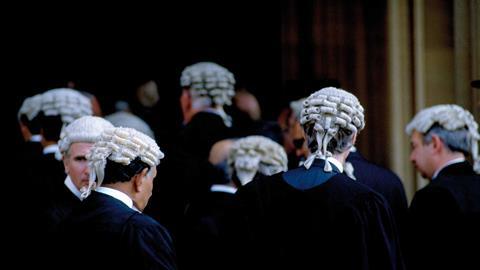The Bar Council plans to hike practising fees next year in order to plug a ‘very significant’ shortfall in its staff pension scheme.
In a budget consultation paper, the body proposes that fees rise by 12% to plug a deficit in its defined benefit scheme which stood at £5.4m in July, the date of the latest scheme valuation. It then expects to freeze fees for five years.
The proposals would result in a £13 increase for the lowest earners, rising to a £198 rise for those earning over £240,000. This will raise £1.3m each year which would be used 'wholly and exclusively' to fund the shortfall.
The Bar Council DB scheme operated from 1974 to 2013 and included staff who switched to the Bar Standards Board when regulation was hived off a decade ago. The organisations together employ around 170 people. The scheme was closed to new members three years ago.
The body needs to raise about £5.4m over five years to meet the deficit by 2021. A levy on the bar imposed between 2010 and 2013 to plug a shortfall which stood at £2.8m in 2012 raised £6.5m. However, this has not proved to be enough, due to increases in liabilities driven by low bond yields indirectly arising from low interest rates.
‘We are now facing a very significant deficit as a result of matters beyond our control,’ the paper says.
The body had considered a pension scheme buy-out and said its triennial valuation report showed the estimated cost would be £16m.
That would have transferred the liabilities to an insurer and absolved the council of further liability. However, the council said a buy-out was not ‘affordable at this time’.
After 2021, the body said it would aim to cut fees so that it collects £1.1m per year. Eventually this could allow it to build a buy-out fund to discharge the pension liability completely – though it added that this could ‘take ten years’.
The Bar Council intends to set a spending budget of £13.9m for 2017/18, £400,000 less than the current year. The Bar Council's direct spending budget will fall by £100,000 to £3.7m, with headcount falling by three.
The paper adds that it is 'critical' to the future funding of the Bar Council that it increases Bar Representation Fee subscriptions, the voluntary £100 levy which funds its representative work.
A spokesperson for the Bar Council said the proposals are subject to consultation with our members and approval from the Legal Services Board.
‘We have made no proposals for PCF rates in 2018 and beyond. In making our annual proposals for PCF rates in future, we will assess the needs of the pension scheme at the time, because they will be dependent on external and often unpredictable factors, and also take into account other factors such as the number of practising barristers.’
The proposals will be submitted to the Legal Services Board for consideration in December.




























4 Readers' comments